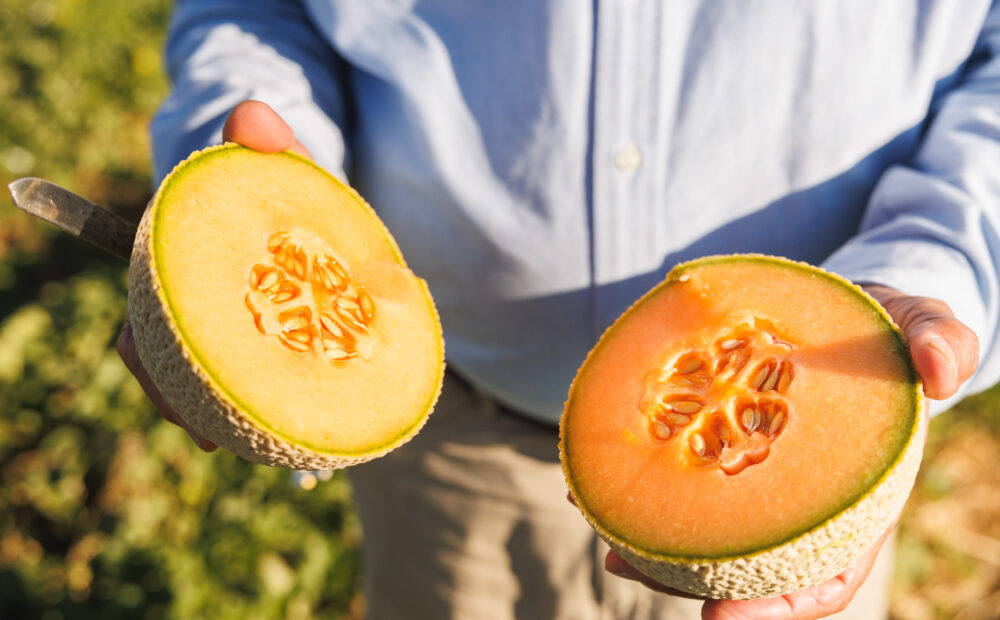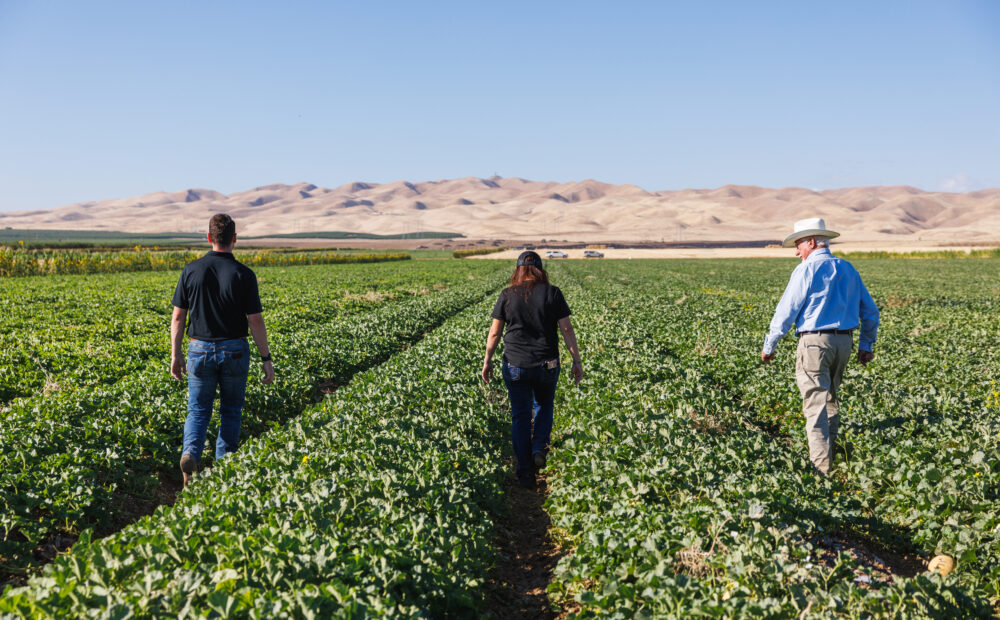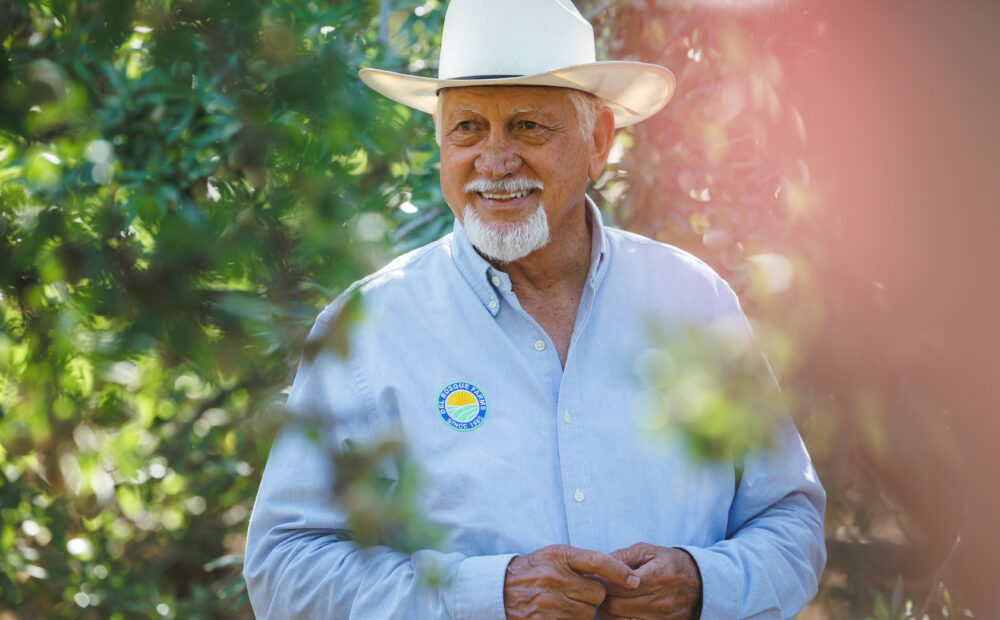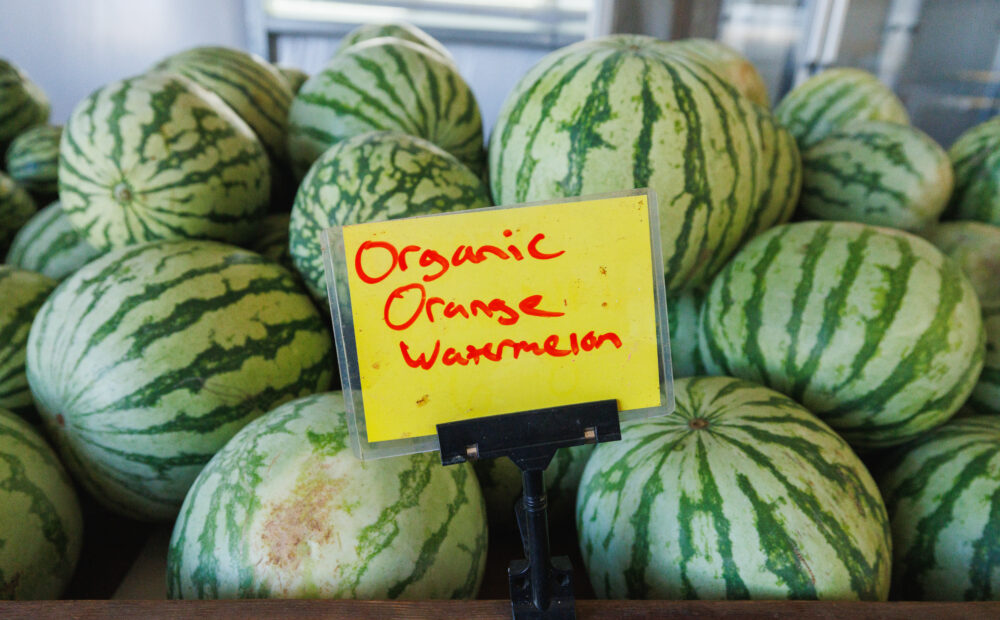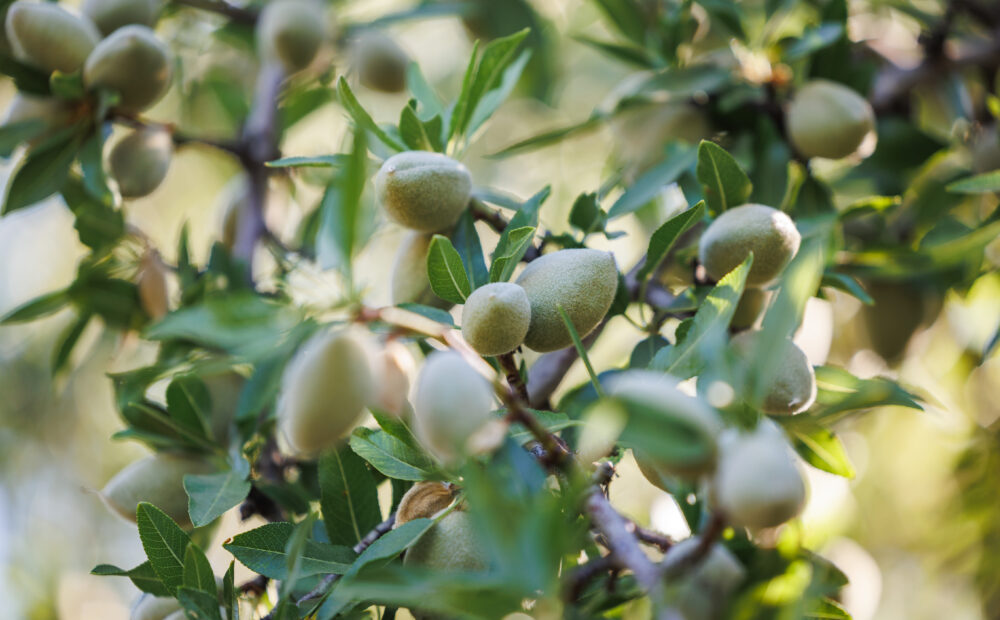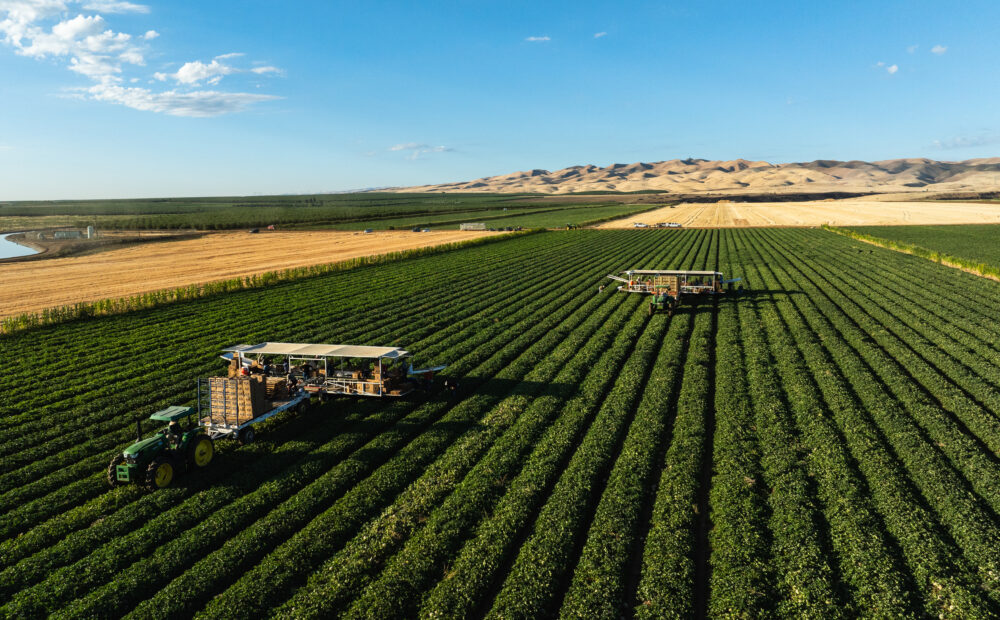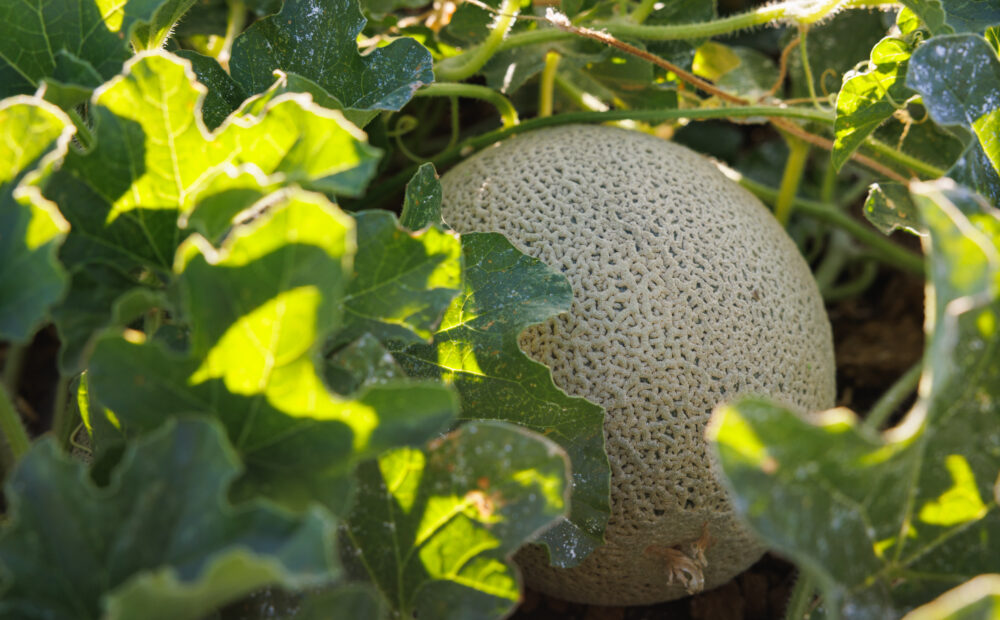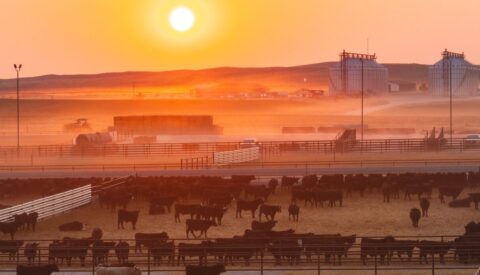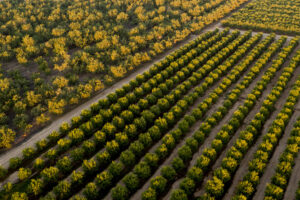When Joe Del Bosque’s parents arrived in the San Joaquin Valley near Fresno in the 1930s, they were heading north to harvest melons before returning to work on farms in the Imperial Valley.
California’s warm climate and long growing season meant that farm workers could travel around the state working on crops with staggered planting and harvesting cycles.
In the 1950s, Joe’s father became a manager at a cantaloupe farm, and the family relocated permanently to the west side of the San Joaquin Valley. Just a few decades later, Joe Del Bosque would start his own farm, growing some of the very same crops that his parents had harvested in years past.
Today, Del Bosque Farms is a family-owned farming operation in Firebaugh, California, located between Fresno and Interstate 5. Joe and his wife Maria have steadily grown the operation from about 240 acres in 1985 to more than 2,000 acres of melon and almonds, all while raising their six children.
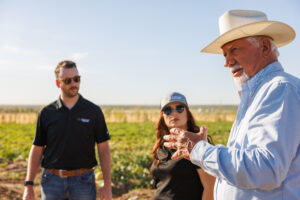 “Melons have been part of my family for probably 80 or 90 years,” said Joe. “So having grown up in melons, it only felt natural that it was a crop that I knew very well.”
“Melons have been part of my family for probably 80 or 90 years,” said Joe. “So having grown up in melons, it only felt natural that it was a crop that I knew very well.”
Del Bosque Farms has become known for growing delicious cantaloupe, watermelon, honeydew and Galia melons, along with the more recent addition of almonds.
Joe said that while almonds have increased in acreage, his employees spend more time focused on harvesting melons as these crops are more labor-intensive than almonds, which can be machine harvested. Del Bosque Farms hires more than 500 people seasonally to harvest melons, which are then processed and prepared for shipment right in the fields.
Getting fresh cantaloupe from field to table
Even as tree nuts and other melons have increased in popularity, Joe said cantaloupe is still the star of the show at Del Bosque Farms. Joe and his team grow melons in a dry, sunny California climate that is ideal for this fruit.
“Cantaloupe has been our mainstay forever,” said Joe. “We’ve been working in cantaloupe since my father’s generation. And it is my favorite melon. It’s a type of melon that you can eat every day, and you never get tired of it. We feel that we grow some of the best melons that you can buy in the United States, right here on the west side of the Central Valley.”
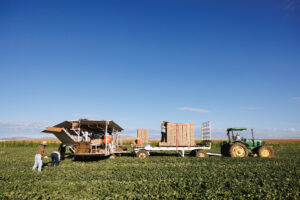
Cantaloupe seeds are planted in late March, then harvested in a period of months from July to October. When Del Bosque cantaloupes are ripe, they are picked, packed and prepared for shipment on a moving platform out in the field. This system keeps the melons fresh with minimal handling. Boxes of fresh melons are then loaded onto refrigerated trucks for shipment.
Del Bosque melons can be found at grocery stores across the country, with organic and conventionally grown fruit available. Travelers heading up or down Interstate 5, California’s main highway artery, can stop in at the Del Bosque fruit stand off the W. Shields Avenue exit to meet the farmer and pick up some tasty melon. The fruit stand is open June to November.
Growing melons, almonds sustainably with less water
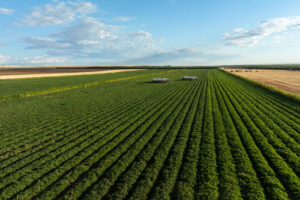
Joe Del Bosque is a lifelong farmer who has been through the highs and lows of farming in the west Central Valley. In recent years, periods of drought have challenged local farms to survive and remain viable while using far less water than in previous decades.
Del Bosque Farms has managed to grow melons with less water through careful planning and precision irrigation. When growing melons and almonds, the farm irrigates only in the crop’s root zone. In some fields, Joe said he has buried drip irrigation lines in the soil to minimize evaporation. Joe also advocates for farmers’ rights and responsible water management in California.
“We’ve seen some terrific highs and lows recently when we had no water, when we’ve had labor shortages, when we’ve had markets going up and down,” said Joe. “It’s going to take some resilience on our part to get to the future while we’re trying to figure out what the future is.”
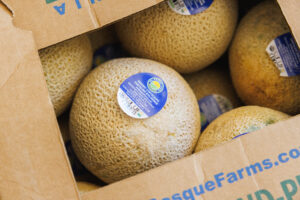 Joe said the farm added organic melons to the crop mix in the mid-2000s and has since introduced low or no-till farming practices for some crops. To grow organic melons, Joe and his team use cover crops to add organic matter and nutrients to the soil. Del Bosque Farms has also shifted from using synthetic fertilizers to composted plant and animal waste, a move that has reduced the farm’s carbon and waste footprints.
Joe said the farm added organic melons to the crop mix in the mid-2000s and has since introduced low or no-till farming practices for some crops. To grow organic melons, Joe and his team use cover crops to add organic matter and nutrients to the soil. Del Bosque Farms has also shifted from using synthetic fertilizers to composted plant and animal waste, a move that has reduced the farm’s carbon and waste footprints.
All together, these growing practices help produce tasty – and responsibly grown – melons and almonds that reach consumers across the country. As his farm has expanded, Joe has worked with the team at American AgCredit, a leading Farm Credit lender, to ensure his operation can continue to grow while maintaining working capital for farm expenses.
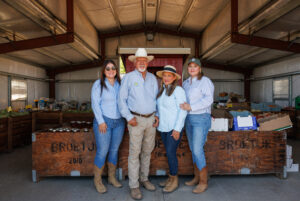 Reflecting on his journey to become a farmer, Joe said he is grateful for his parents’ hard work and sacrifices to give him better opportunities than they had as migrant farm workers. He pointed to the rising number of Latino agriculture students as a sign that descendants of farm workers are getting a better shot at a broad range of careers in agriculture.
Reflecting on his journey to become a farmer, Joe said he is grateful for his parents’ hard work and sacrifices to give him better opportunities than they had as migrant farm workers. He pointed to the rising number of Latino agriculture students as a sign that descendants of farm workers are getting a better shot at a broad range of careers in agriculture.
“When I went to school at Fresno State, I was the only Latino in the school of agriculture,” said Joe. “Today, there are over a thousand Latinos in the school of agriculture. I think that shows Latinos are embracing agriculture and there will be opportunities for them in the future to come into agriculture, not like their parents who worked in the farms picking crops, but as higher-level professionals, managers, technicians and so forth. But there will still be opportunities for them to become farmers like I did.”

